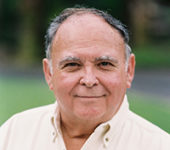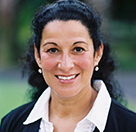• by Rosana G. Rodríguez, Ph.D., and Abelardo Villarreal, Ph.D. • IDRA Newsletter • October 2010 • 



Ensuring equity and excellence for English language learner (ELL) students in science requires a collaborative approach with strong educational leadership, professional development that supports both content knowledge and effective pedagogy, and meaningful parent engagement. Such an effort is underway in the San Marcos Consolidated Independent School District in Texas. In partnership with Texas State University and the district, through a sub-award from the Texas Education Agency, IDRA is implementing its Science Smart! model of professional development in Stellar II, an initiative with a shared commitment to increase ELL achievement in science.
Supports for Working Together
Leadership and a commitment to equity and success must begin at the top in order to set the tone for high achievement and equitable treatment for all students. San Marcos CISD is deeply committed to high achievement in science for ELLs and all students. They take pro-active steps to promote this vision of equity and leadership with their principals, coordinators and teachers.
Collaboration is reinforced through monthly planning meetings among the partners that set a tone for shared accountability, ongoing assessment and continuous improvement. The partnership was established by the Texas State University School of Education. A logic model for the community of learners approach was designed by IDRA at the outset, building on past efforts and success of Stellar I. Within the model, each partner has a critical role to play in supporting student success.
Community of Learners Approach
The shared vision for ELL success in science is embodied through a community of learners approach and a multi-disciplinary focus. This focus informs and sustains reform, enhances professional development practices, and seeks effective solutions to education challenges faced by ELLs in mastering science competencies.
The Stellar II community of learners includes commitment from leadership in the Colleges of Science and Engineering at Texas State University to help improve content knowledge for teachers in science. College faculty host Science Saturdays for ELL students and their parents to deepen knowledge in science content areas and to help promote a college-going culture and interest in STEM (science, technology, engineering, math) areas.
IDRA provides ongoing professional development in effective pedagogy for ELLs, coaching and mentoring for teachers, and support for instructional coaches, adhering to state requirements and in preparation for state assessments. The university and IDRA are further supporting leadership development for principals, reinforcing access and equity in education.
Culturally Responsive and Meaningful Parent Engagement
For Stellar II, a dual approach is being executed to support parent engagement. The first aims at working with parents and parent coordinators through a train-the-trainer approach that reinforces parent leadership and involvement. Parents work with other parents as first teachers of their children, as resources to schools, as decision-makers, and as teachers of other parents (Montemayor, 2007; Lopez del Bosque, 2010). The second approach builds the capacity of principals and teachers to create a campus plan for meaningful parent engagement.
IDRA’s seven-part Community Engagement Series for Educators provides resources for planning effective engagement with parents and evaluating progress for continuous improvement based upon IDRA’s Six Goals of Educational Equity and School Reform (Scott, 2002) and principals of engagement (Rodríguez, García & Villarreal, 2010b).
The school district is further reinforcing the idea of strong home-school partnerships with a bilingual guide for parents, also designed by IDRA, that outlines science requirements for each grade and ways parents can encourage science learning at home (Rodríguez & Villarreal, 2010a).
IDRA provides parent leadership training and additional support through its federally-funded Texas Parent Information and Resource Center. In addition, the school district’s director of development and community partnerships is seeking support from local community-based organizations and other groups to become district advocates and partners. The district has assigned a group of community liaisons, who personalize support and outreach to parents and ensure designated resources for parents within each school.
Using Technology to Enhance Support for Teachers and Evaluation
Science content and pedagogy for ELLs is enhanced through the integration of technology for teacher support. IDRA provides video conferences that expose teachers to new approaches in using technology for science instruction and links teachers to other resources for professional development. Capitalizing on the school district’s existing infrastructure and IT resources, IDRA is working with the district to link elementary and middle school campuses for accessing separate professional development sessions for teachers. These sessions simultaneously bring in teachers from remote sites to a common bridge so that they can participate, ask questions and interact with trainers. The sessions are archived for self-evaluation and continuous quality improvement and are setting the stage for future webinars that will allow for greater individual interaction and breakout groups as technology and science components are integrated into ongoing professional development and the curriculum. Technology also is used for the collection of pre- and post-data and other assessments from teachers in the area of self-efficacy in science through coordinated efforts between IDRA and the university.
Asset-based Professional Development
IDRA’s professional development approach in Science Smart! consists of three interrelated and simultaneous components: (1) workshops, (2) on-site culturally relevant mentoring and coaching, and (3) online learning, coaching and mentoring. The approach is based on the following premises.
- All students can learn when they are fully engaged, immersed in learning, challenged and supported.
- Instruction is most effective when students explore, investigate, discover and see the value and application of science content to real life and connectivity to a brighter future.
- Teachers learn more through a community of learners methodology.
- Students have an innate, natural sense of curiosity that parallels the scientific process. Through inquiry-based learning and technology integration, learning is magnified.
- Transformation in teaching practice requires ongoing reflection and refinement focusing on individual learning opportunities.
- Teachers deepen and share their own content knowledge when connected to professionals in the content field.
Change that is sustainable in both practice and policy, a renewed and sharpened focus on equity, and gains in teacher proficiency in science are being evidenced through the shared vision and collaboration for student success among the partners. While aimed at ELLs, this collaborative approach benefits all students. Through this partnership, a sustainable network of support from K-12 through college is being created that holds promise for student gains and lasting impact.
Resources
To learn more about Science Smart! contact IDRA (210-444-1710) or see http://www.idra.org/Services/Science_Smart!_Secondary_Training/.
Intercultural Development Research Association. Six Goals of Educational Equity and School Reform, South Central Collaborative for Equity online equity guide (San Antonio, Texas: Intercultural Development Research Association, 2009).
López del Bosque, R. “Family Leadership in Education – Putting Principles into Action,” IDRA Newsletter (San Antonio, Texas: Intercultural Development Research Association, April 2010).
Montemayor, A. “IDRA’s Family Leadership Principles,” IDRA Newsletter (San Antonio, Texas: Intercultural Development Research Association, September 2007).
Rodríguez, R.G. “What Parent and Community Engagement Means for Quality Schools,” IDRA Newsletter (San Antonio,
Texas: Intercultural Development Research Association, April 2009).
Rodríguez, R.G., & A. Villarreal. Helping Your Child Discover Science (San Antonio,
Texas: Intercultural Development Research Association, 2010).
Rodríguez, R.G., & J.C. García, A. Villarreal. Community Engagement Series for Educators (San Antonio, Texas: Intercultural Development Research Association, 2010).
Scott, B. “Who’s Responsible, Who’s to Blame?” IDRA Newsletter (San Antonio,
Texas: Intercultural Development Research Association, May 2002).
Rosana G. Rodríguez, Ph.D., is director of development at IDRA. Abelardo Villarreal, Ph.D., is director of IDRA Field Services. Comments and questions may be directed to them via e-mail at feedback@idra.org.
[©2010, IDRA. This article originally appeared in the October 2010 IDRA Newsletter by the Intercultural Development Research Association. Permission to reproduce this article is granted provided the article is reprinted in its entirety and proper credit is given to IDRA and the author.]


